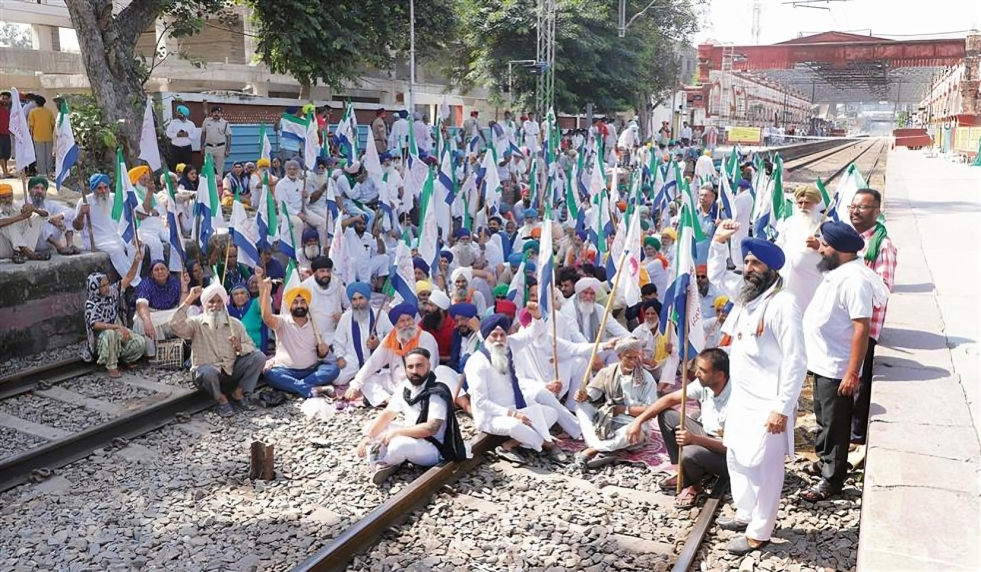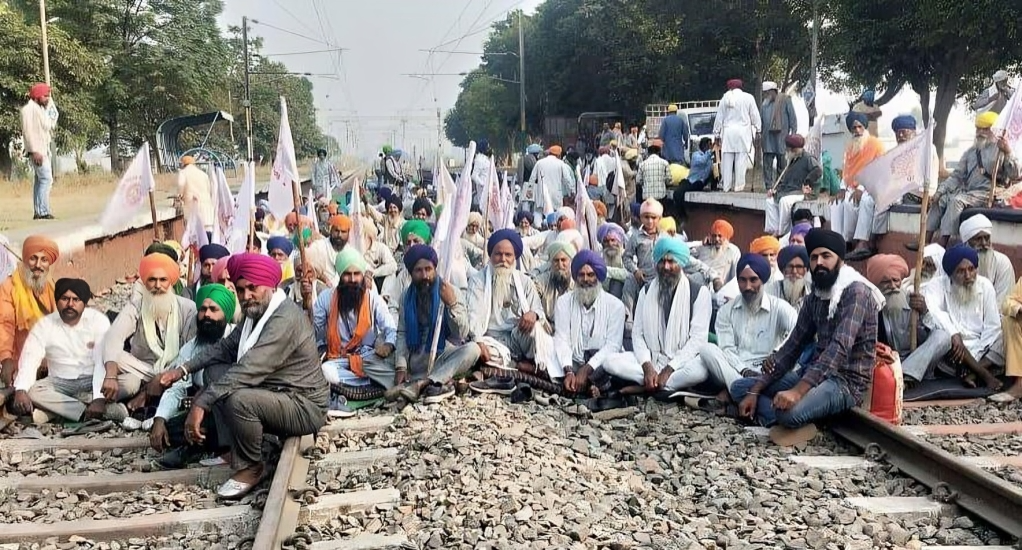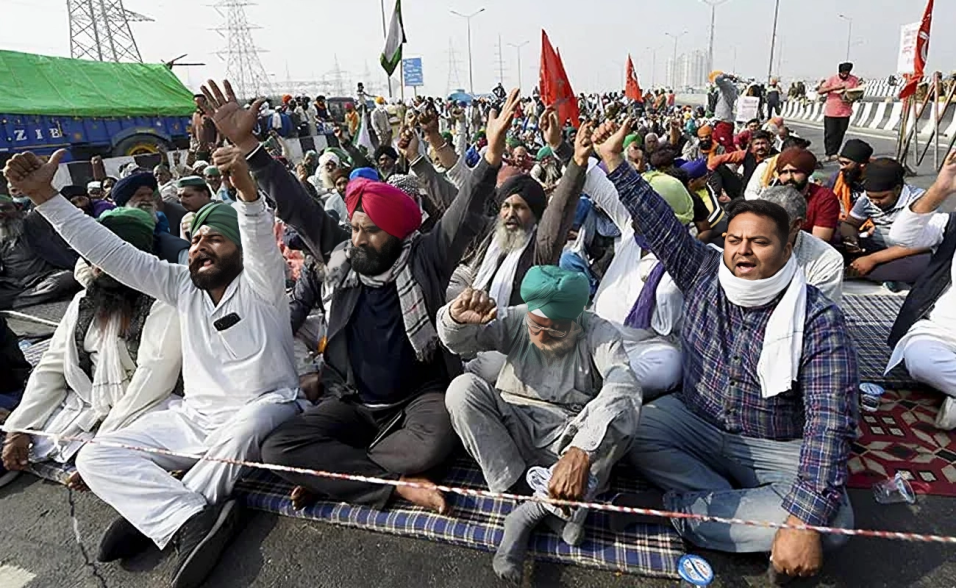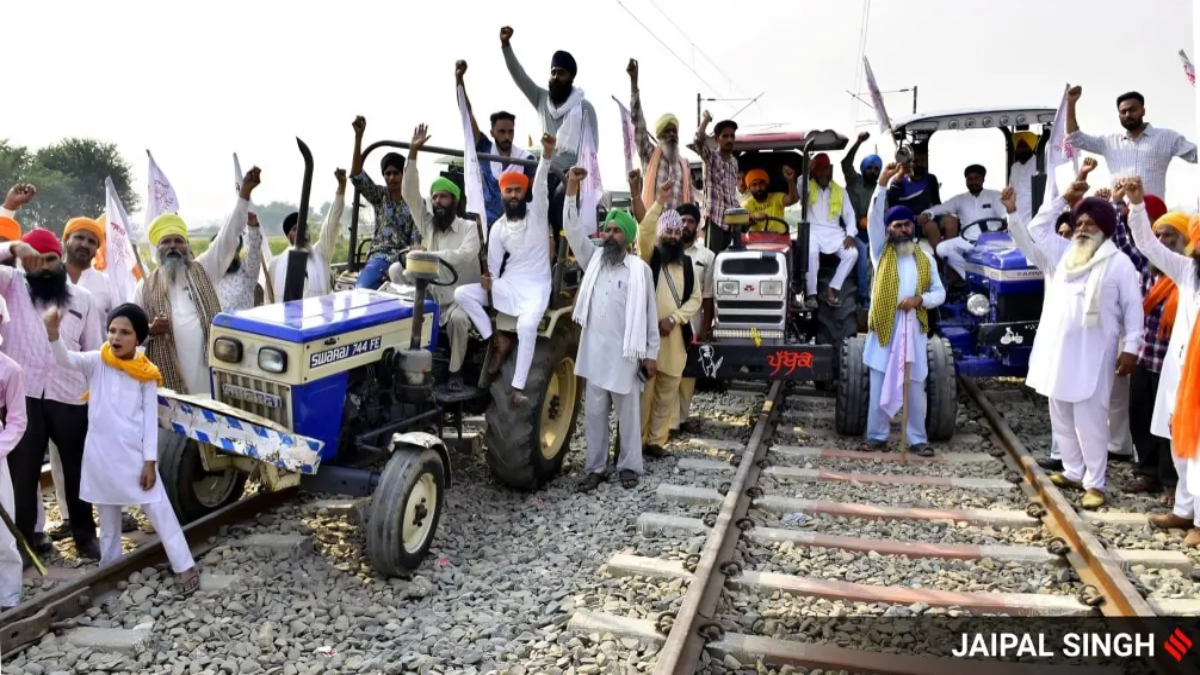Three Union ministers are scheduled to meet with farmers’ leaders in Chandigarh for the third round of talks amidst the stand-off at the borders of Haryana and Punjab. Notably, several prominent farmers’ unions have expressed their solidarity with the protesting farmers at the Shambhu and Khanauri borders in Punjab.
The Bharatiya Kisan Union (Ugrahan) and BKU Dakaunda (Dhaner faction) have even announced a ‘rail roko’ (train stoppage) in the state on Thursday, February 15, from 12 noon to 4 pm. Additionally, the Samyukt Kisan Morcha, a collective body of 37 farm unions, has also lent its support to the ongoing protests. The primary demand of the protesters is the implementation of a minimum support price (MSP) for their agricultural produce.

The unions, which had previously played significant roles in the demonstrations on the outskirts of Delhi in 2021, have now joined the ongoing protests due to the “unacceptable use of violence” against farmers. Sukhdev Singh Kokri Kalan, the general secretary of BKU (Ugrahan), strongly criticized the actions of the police. “We express our unwavering support for them. As a demonstration of our solidarity, our followers will conduct rail roko (train stoppage) at multiple locations,” he declared. The organization intends to obstruct train tracks in Punjab from 12pm to 4pm on Thursday, a day prior to the nationwide strike scheduled for February 16. Stay updated on the farmers’ protest through Live Updates.
Key highlights of the farmers’ ‘Delhi chalo’ protest are as follows:
- According to a report by The Indian Express, nearly 10 protest sites have been finalized for the rail roko protest, in which the BKU Ugrahan and BKU Dakaunda (Dhaner faction) will participate jointly. It is expected that more locations will be added by evening. The selected protest locations include Rajpura, Sunam (near Shambu and Khanauri borders), Jethuke village in Bathinda, Moga, Mansa, Malaut, Valla railway crossing in Amritsar, Barnala, Sangrur, and Budhlada. These protests will impact the Amritsar-Jalandhar-Delhi line, the Mansa-Bathinda-Delhi line, Ludhiana-Ferozepur line, and several other locations, as stated by Sukhdev Singh Kokrikalan, the general secretary of BKU Ugrahan.

- On Thursday, three Union ministers, namely Arjun Munda, Piyush Goyal, and Nityanand Rai, will meet with farmers’ leaders in Chandigarh for the third round of talks. This comes as the stand-off between the protesters and police at the Punjab-Haryana border enters its third day, marked by further clashes between the two sides. The previous meetings held before the march began were inconclusive.
- In the meantime, Defence Minister Rajnath Singh and Agriculture Minister Arjun Munda held discussions in New Delhi to address the issues raised by the farmers, according to reports.
- On Wednesday, at the Shambhu border point near Ambala, there were intermittent clashes between security personnel and the ‘Delhi Chalo’ protesters. Tear smoke was used by security forces whenever groups of farmers approached the barricades. Reports also mentioned incidents of stone-pelting by the protesters towards security personnel.

- A similar stand-off continued at the Data Singhwala-Khanauri border in Haryana’s Jind district. However, the situation remained relatively less volatile compared to Tuesday when farmers attempted to shift cement barriers at Shambhu using their tractors in an effort to move towards the national capital.
- Farmer leaders have alleged that more than 100 protesters sustained injuries on Tuesday, as they were struck by rubber bullets and tear gas shells. In response, the police stated that 24 of their own personnel were injured during the first day of the protest due to stone-pelting by the protesters.
- At the Shambhu border, farmers have lined up their tractor-trolleys along the road, with more farmers arriving from various parts of Punjab. However, they are still more than 200 km away from their intended destination.
- To ensure security, multiple layers of concrete blocks and metal spikes have been installed at Delhi’s Singhu and Tikri borders with Haryana, as well as at the Ghazipur border with Uttar Pradesh. This has resulted in traffic restrictions for Delhi-Sonipat commuters at Singhu and the movement of vehicles towards Bahadurgarh.
- In Delhi, commuters at the Singhu border have faced significant difficulties due to the area being sealed off and the heavy presence of police and paramilitary forces.

